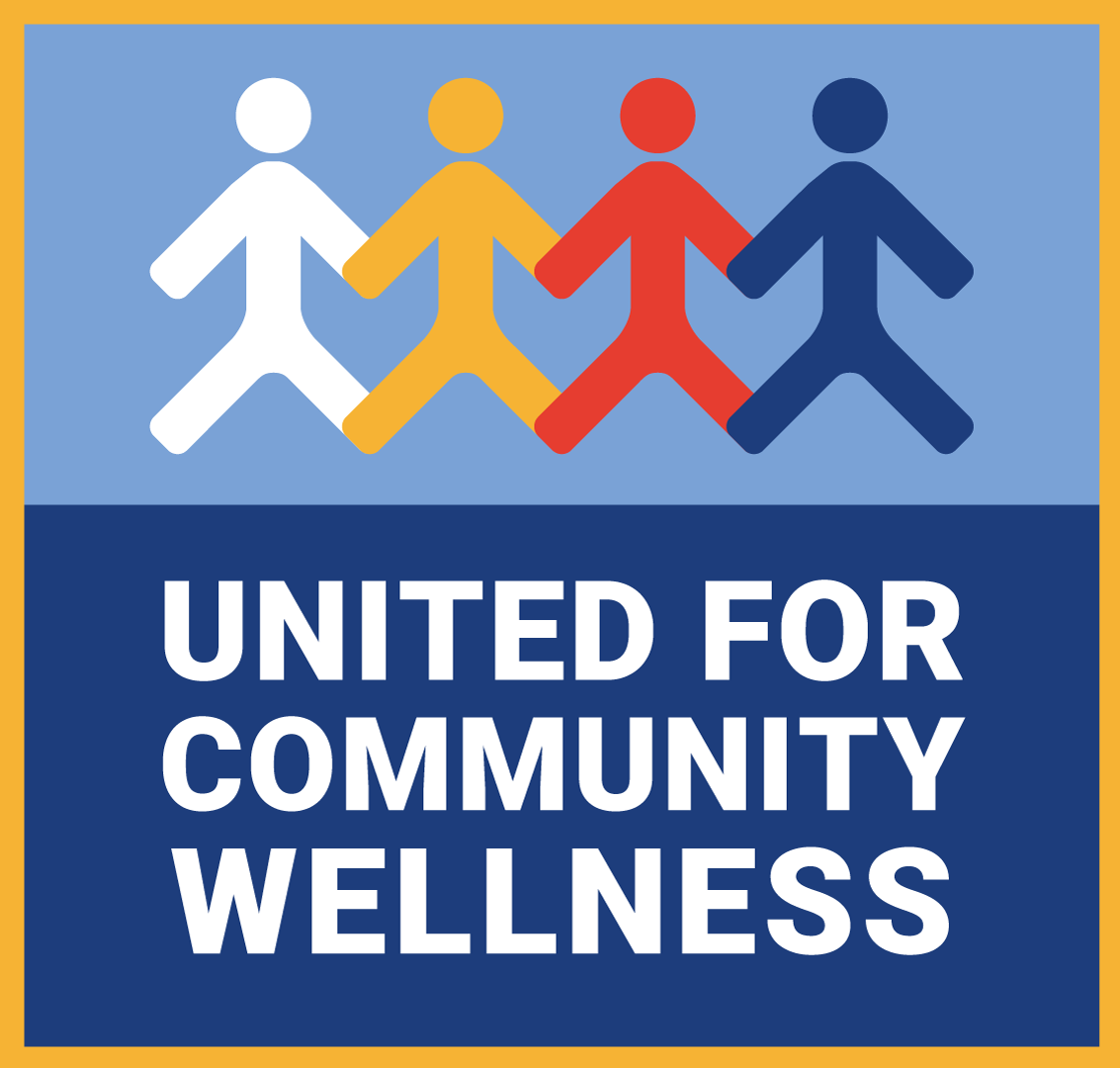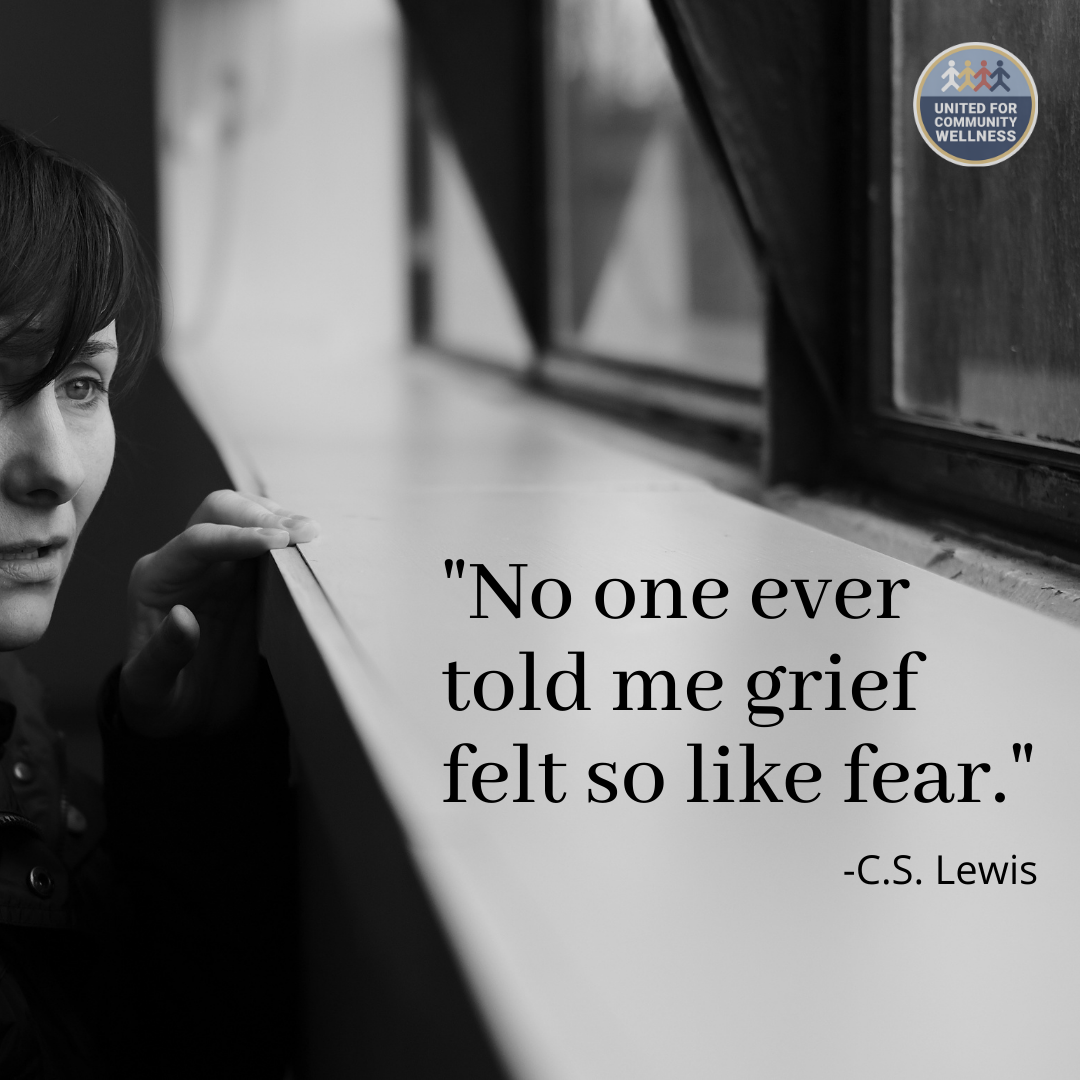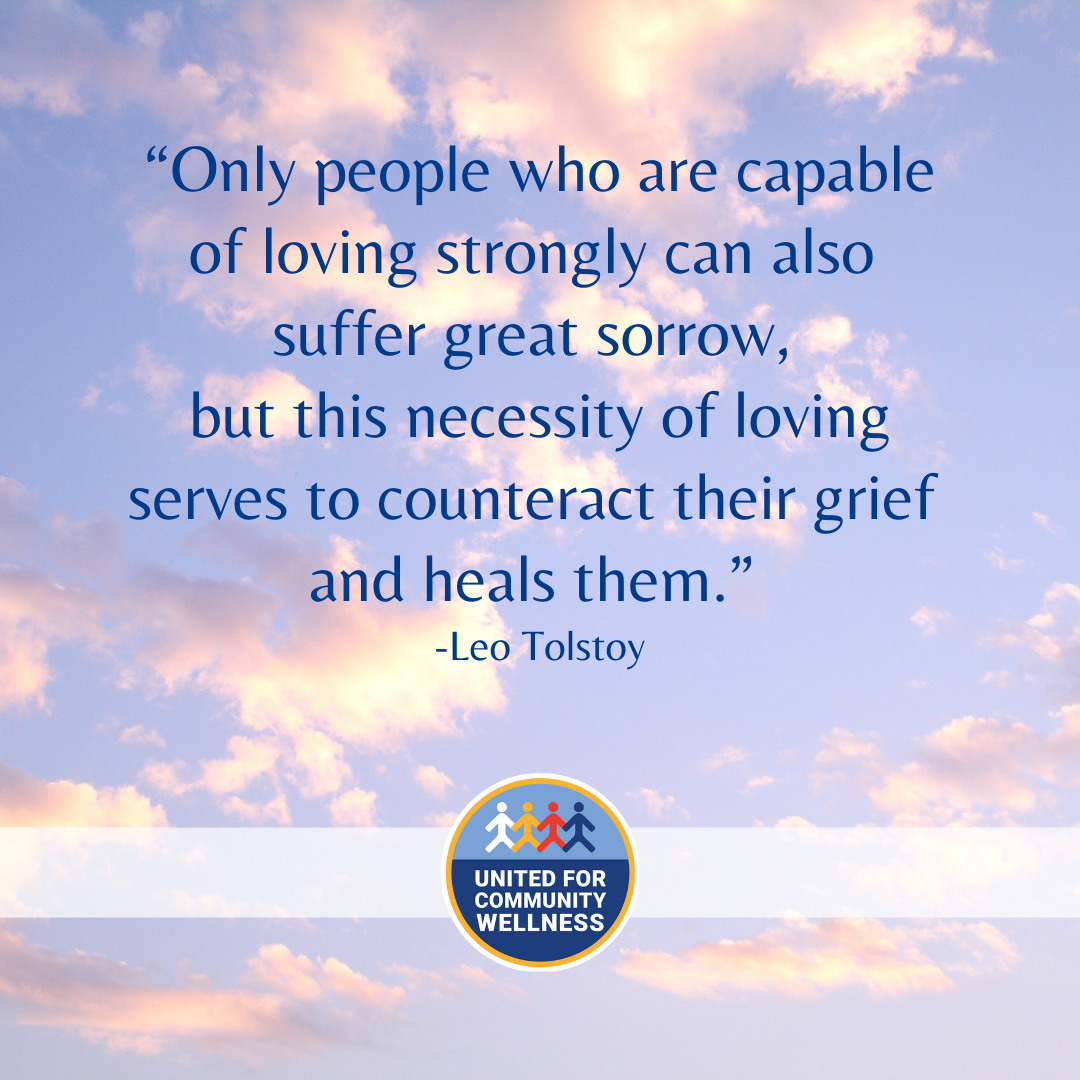Grief and Loss
Facebook or Instagram Post:


Article/Email/Website:
Excerpt directly from: CDC
Many people are experiencing grief during the COVID-19 pandemic. Grief is a normal response to loss during or after a disaster or other traumatic event. Grief can happen in response to loss of life, as well as to drastic changes to daily routines and ways of life that usually bring us comfort and a feeling of stability. Common grief reactions include:
- Shock, disbelief, or denial
- Anxiety
- Distress
- Anger
- Periods of sadness
- Loss of sleep and loss of appetite
Some people may experience multiple losses during a disaster or large-scale emergency event. Because of the COVID-19 pandemic, you might be unable to be with a loved one when they die, or unable to mourn someone’s death in-person with friends and family. Other types of loss include unemployment, or not making enough money, loss or reduction in support services, and other changes in your lifestyle. These losses can happen at the same time, which can complicate or prolong grief, and delay a person’s ability to adapt, heal, and recover.
If you feel distress from other types of loss or change
During the COVID-19 pandemic, you may feel grief due to loss of a job; inability to connect in-person with friends, family or religious organizations; missing special events and milestones (such as graduations, weddings, vacations); and experiencing drastic changes to daily routines and ways of life that bring comfort. You may also feel a sense of guilt for grieving over losses that seem less important than loss of life. Grief is a universal emotion; there is no right or wrong way to experience it, and all losses are significant.
Here are some ways to cope with feelings of grief:
- Acknowledge your losses and your feelings of grief.
- Find ways to express your grief. Some people express grief and find comfort through art, gardening, writing, talking to friends or family, cooking, music, gardening or other creative practices.
- Consider developing new rituals in your daily routine to stay connected with your loved ones to replace those that have been lost.
- People who live together may consider playing board games and exercising together outdoors.
- People who live alone or are separated from their loved ones may consider interacting through phone calls and apps that allow for playing games together virtually.
- If you are worried about future losses, try to stay in the present and focus on aspects of your life that you have control over right now.
Video
Action Step:
Give yourself permission to feel grief and then take some time to journal positive memories.
